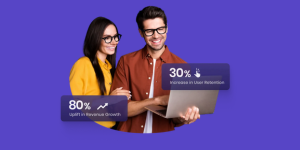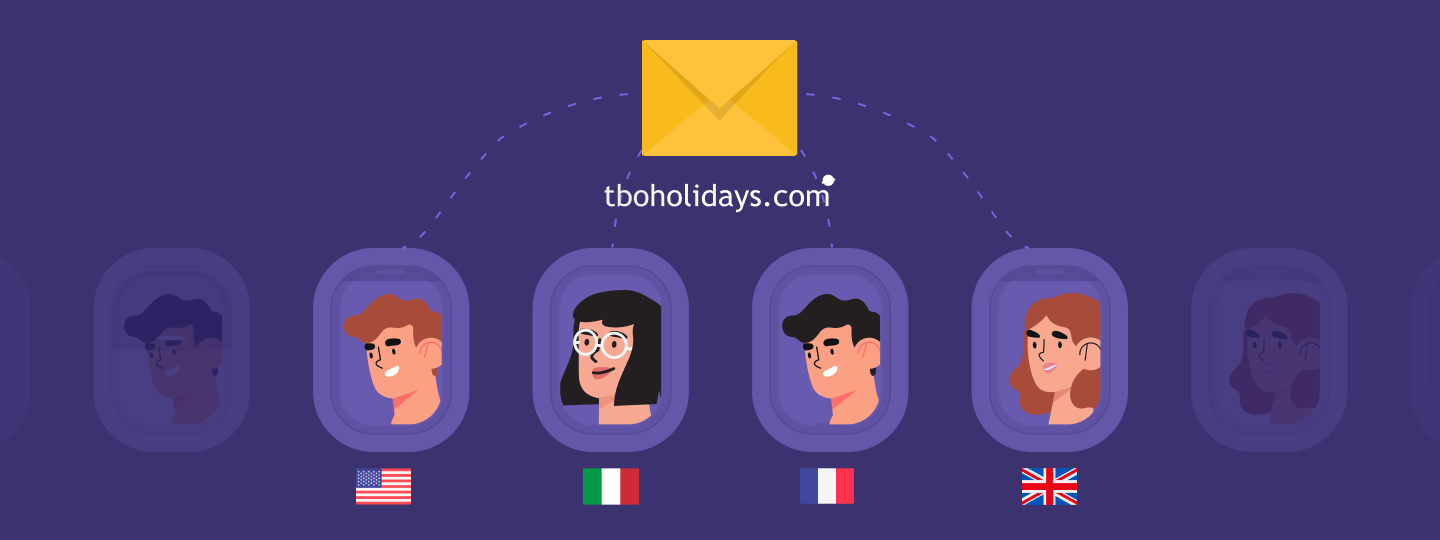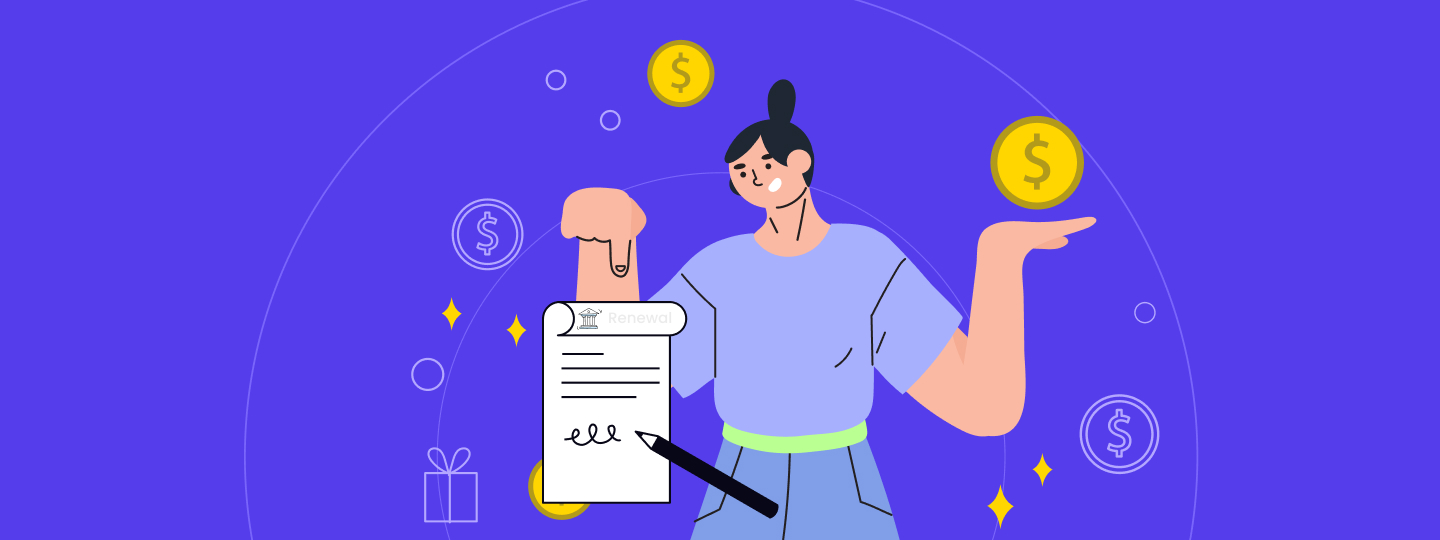Introducing a powerful tool that effortlessly examines your customer data, extracts valuable insights, takes action on these insights in real-time, and consistently streamlines your workflow: Marketing Automation.
This remarkable innovation has transformed the way businesses operate and communicate.
From acquiring new customers to retaining existing ones, Marketing Automation optimizes your communications by eliminating repetitive and time-consuming tasks.
As a result, you can dedicate more time and resources to addressing crucial issues that impact company growth and efficiency.
Table Of Contents:
1. The Importance of Focusing on Existing Customers
2. The Relationship between Customer Loyalty and Marketing Automation
3. How Marketing Automation can help increase customer loyalty
4. Examples of successful Marketing Automation campaigns that boosted customer loyalty
5. Conclusion: Investing in Marketing Automation for customer loyalty
6. FAQs
To provide a better understanding, Marketing Automation assists in crafting a closed-loop marketing campaign by integrating and gathering insights from your CRM, lead management system, and analytics platform.
It handles all aspects, including data analysis, audience segmentation, personalization for customer loyalty, execution, analysis, and reporting, allowing you more time to devise targeted campaigns for your prospects and enhance customer experience with Marketing Automation for improved customer retention.
The Importance of Focusing on Existing Customers
In today’s cut-throat business landscape, adopting a customer-centric approach is vital for survival. Modern customers possess the resources to make well-informed purchasing decisions, and if your business isn’t their top of choice, your competitors will reap the benefits. Battling for prospects’ attention and securing their business can be a costly and unpredictable undertaking. Nevertheless, you possess complete control over retaining existing customers by constantly offering value and ensuring prompt customer support.
Customer retention serves as the cornerstone for lasting growth. Devoted customers may hold a value up to 10 times their first purchase, showing dedication, a propensity to buy again, and an increased likelihood of paying premium prices for outstanding service and assistance.Without incurring training expenses and with the added benefit of high-caliber referrals, these customers provide invaluable insights and feedback, empowering you to enhance your products and services.
Nevertheless, customers’ needs and expectations evolve over time. It’s essential to reinforce your value proposition to maintain their interest continuously. After their initial purchase, your goal should be to influence their next decision in your favor by presenting value-based offerings tailored to specific customer segments. The most effective way to anticipate customer behavior is by mapping out the entire customer journey. This exercise allows you to refine the process, identify gaps, discover opportunities, and plan timely campaigns.
Marketing Automation empowers you to design customer journeys that enhance your understanding of buyer intent, enabling you to engage customers with relevant content at the right moment. This process delights customers and guides them through the sales funnel, transforming them into loyal brand advocates.
The Relationship between Customer Loyalty and Marketing Automation
- Customer loyalty is a measure of a customer’s willingness to repeatedly choose a particular brand, product, or service over competitors due to a positive experience, satisfaction, and perceived value. Loyal customers are more likely to make referrals, provide valuable feedback, and contribute to a brand’s long-term growth.
- Marketing Automation can significantly enhance customer loyalty by personalizing interactions and ensuring timely, relevant communication. Businesses can tailor content and offers to individual preferences by utilizing customer data, leading to a more meaningful and engaging customer experience.
- Automation also allows for consistent, targeted follow-up, fostering trust and a deeper connection with the brand. This ultimately results in increased customer retention and long-term loyalty.
Several key metrics can help determine the impact of Marketing Automation on customer loyalty:
1. Customer Retention Rate:
It refers to the percentage of customers who continue to engage with your brand over a specific period. Higher retention rates indicate a positive effect of Marketing Automation on loyalty.
2. Repeat Purchase Rate:
It refers to the rate at which customers make additional purchases. An increase in repeat purchases suggests that Marketing Automation is successfully nurturing customer loyalty.
3. Customer Lifetime Value (CLV):
This metric represents the total net profit a company can expect from a single customer over their entire relationship. A higher CLV signifies greater loyalty and a more significant contribution to the company’s growth.
4. Net Promoter Score (NPS):
NPS measures customer satisfaction and loyalty by asking how likely they are to recommend your brand to others. A higher NPS indicates that Marketing Automation is effectively boosting customer loyalty.
Keeping track of these metrics can help businesses determine whether their Marketing Automation efforts are fostering customer loyalty and optimize their strategies accordingly.
How Marketing Automation Can Help Increase Customer Loyalty
Now that we’ve established the importance of customer loyalty and its connection with Marketing Automation let’s explore how to optimize the entire customer journey.
By focusing on education, delight, and support, we can transform customers into dedicated champions for your brand:
1. Aligning Marketing & Sales
Oftentimes piping hot leads end up in the ‘no man’s land’ and get edged out due to the disparity between your marketing and sales team. Marketing Automation simplifies the lead assignment process by capturing the leads, segmenting the qualified leads based on their scores, and routing them to the appropriate marketer/sales rep for the next steps.
This process ensures that every MQL/SQL is accounted for and taken care of. By sharing the resources and inside knowledge, both your marketing and sales teams will be equally empowered to work towards the common goal and provide the best possible experience to the customer.
2. Exceptional Onboarding
In all probability, onboarding marks the first direct interaction between your leads and your team, so make it count.
-
- Segment the leads by their engagement history, interests, and behavior and create customized welcome journeys for them.
- Automate your welcome messages across all channels and make those dynamic to ensure the relevancy of these messages.
- Have all your documentation and resources ready and provide those to the customers as and when required.
- Track the usage and behavior patterns to detect problematic areas of your website.
For instance, it has been reported that real-time welcome emails with offers tend to have higher transaction rates and revenue per email than those without.
Hence, you can automate the welcome messages with customized offers to start off on the right foot.
3. Personalizing Content
Marketing Automation tools enable brands to foster a more genuine and dynamic two-way conversation with customers by analyzing their behaviors and actions. This distinctive approach lays the foundation for a 1:1 customer relationship.
Segment your customers according to demographics, needs, budget, usage, and more, and deliver tailored targeted content. This strategy significantly enhances their receptiveness and elevates top-of-mind awareness, increasing the likelihood of retention.
For instance, data mining can reveal the probability of a customer’s repurchase based on their transaction history. With this information, you can develop a cross-channel campaign featuring well-timed messages, setting the stage for upselling and cross-selling opportunities. This insight sets the stage for our next discussion –
4. Personalized Communication with Customers
Establishing a strong customer relationship is essential, and Marketing Automation is crucial in facilitating this connection. It enables you to design retention campaigns across various customer lifecycle stages using RFM (Recency, Frequency, Monetary) analysis, ensuring tailored content is delivered at the perfect moment.
Mass marketing emails are outdated. To cultivate customer loyalty, you must envision the entire customer journey and consistently deliver value, even after a purchase. This approach fosters a lasting, seamless customer relationship, increasing their Customer Lifetime Value (CLV).
Here’s how you can initiate personalized communication:
-
-
- Monitor lead activity across your website, including page visits, sessions, bounces, and content downloads.
- Assign scores to each lead and engage with the most passionate brand evangelists by offering special discounts, referral programs, and loyalty campaigns.
- Identify low-scoring customers and create tailored offers to re-engage them. For instance, send a “Miss You” email to customers who haven’t interacted with your brand for an extended period.
- Customize emails for upcoming birthdays, surprising customers with time-sensitive, FOMO-triggering discounts, like Nike’s birthday wish email campaign.
-

5. Collecting Feedback
Instead of waiting for customers to complain publicly, seek feedback actively to increase goodwill and detect at-risk accounts. Automate Net Promoter Score surveys to every customer after a certain period of time to stay at the top of the game. If someone’s dissatisfied, personally reach out to them and try to mitigate the risk as fast as possible.
You can even automate post-sales feedback interviews with new customers to find improvement areas and encourage them to come back.
6. Re-Engaging Inactive Customers
Sometimes, even the most loyal customers defect for the tiniest of reasons. To gently remind these customers or to reactivate old accounts, you need to have an automated practice in place that’ll nudge them towards taking a guided action.
For example, if a customer has downloaded your app but hasn’t made any transactions in two weeks, you can automate outreach emails/in-app push notifications to notify them of
-
-
- a great offer that they may be missing out on,
- send them a time-sensitive deal, or
- remind them of unused points piling up in their account.
-
An abandoned shopping cart is a chronic pain that affects all e-commerce businesses. Through Marketing Automation, you can implement a cross-channel cart recovery campaign to increase conversion rates.
Blackmilk Clothing knows how to re-engage prospects, for sure. All you require is a bit of creative writing, an eye-catching subject line, and/or a relevant image. Just add the personalization points and automate the journey.
7. Providing Stellar Customer Support
“82% of customers have left a company because of a bad customer service experience.” .
Your customers expect a fast and accurate response to their queries, and frankly, they deserve it. When you have a huge user base, it becomes difficult for your customer success team to respond to all of their queries immediately and to keep an eye out for any issue the user may be sharing elsewhere.
This is where Marketing Automation steps in.
-
-
- Arrange for a live chat support system to respond to visitors and customers to reduce the initial response time. Set an automated response whenever your team is not online.
- Automate outreach and follow-up emails for your sales reps.
- The social integration tool will help the team scan the web for brand mentions and sentiment analysis of the customers. Even if a customer is just venting, a timely and helpful response will reflect positively on your brand and impress the customer.
- You can check in regularly to track customers who are fading out and/or looking for fast query resolution. This will help you detect the customers who are close to churning so that you can immediately flag the user and engage them at the right moment.
-
Glossier uses its Twitter handle for good – to resolve queries, give away suggestions or provide detailed skincare routines (as demonstrated below). With social integration tool, you can track specific keywords/ brand mentions or direct tweets to respond in real time.
Examples Of Successful Marketing Automation Campaigns That Boosted Customer Loyalty
Now let’s explore how Marketing Automation campaigns can not only increase revenue but also enhance customer loyalty:
1. Starbucks’ Mobile App and Rewards Program
Starbucks has effectively leveraged marketing automation to create a highly personalized mobile app experience for its customers. The app tailors recommendations based on user preferences and purchase history, while the rewards program offers incentives such as free drinks and exclusive deals.
This strategic combination of personalization and rewards has significantly increased customer loyalty and engagement.
2. Amazon’s Personalized Recommendations
Amazon has long been a pioneer in utilizing Marketing Automation to offer personalized product recommendations. Using customer browsing and purchase histories, Amazon provides highly relevant suggestions to individual customers, enhancing their shopping experience.
3. Sephora’s Beauty Insider Program
Sephora’s Beauty Insider Program is an excellent example of using Marketing Automation to create a loyalty program that rewards customers and encourages them to engage with the brand further. The program offers tiered benefits, such as free samples, exclusive events, and birthday gifts, all based on customers’ purchase history and preferences. This personalized approach has successfully enhanced customer loyalty and retention.
4. Netflix’s Tailored Content Recommendations
Netflix employs advanced algorithms and Marketing Automation to provide personalized content recommendations for its subscribers. By analyzing users’ viewing history and preferences, Netflix offers a curated list of movies and shows that cater to individual tastes. This personalized experience keeps subscribers engaged and loyal to the platform. These successful Marketing Automation campaigns showcase how personalization, rewards programs, and tailored recommendations can boost customer loyalty and create lasting connections with a brand.
Conclusion: Investing In Marketing Automation For Customer Loyalty
The equation is simple – to achieve customer loyalty, a robust retention strategy is essential.
Concentrate on delivering a comprehensive customer experience, engaging and re-engaging loyal customers, and providing value at every stage of their journey. Developing a lasting and fruitful relationship with customers requires recognizing each lead as a unique individual with distinct challenges and needs, engaging with them accordingly.
While this may seem daunting, Marketing Automation streamlines the process, enabling you to work more efficiently, minimize waste, save time, and boost productivity.
You can transform customer loyalty and drive long-term success for your brand by embracing Marketing Automation.
FAQS
-
- What is Marketing Automation?
Marketing Automation is the use of software to automate repetitive tasks, optimize workflows, and personalize marketing efforts, ultimately enhancing customer engagement and driving growth. - What challenges come with implementing Marketing Automation?
Challenges include choosing the right platform, integration with existing systems, staff training, content creation, and maintaining data privacy and compliance. - How does Marketing Automation help with customer retention?
Marketing Automation aids in customer retention by providing personalized content, nurturing leads, monitoring customer behavior, and offering targeted promotions to keep customers engaged and satisfied. - How can Marketing Automation increase customer loyalty?
Marketing Automation enhances customer loyalty by enabling personalized communication, delivering tailored recommendations, rewarding customers through loyalty programs, fostering long-term relationships, and turning customers into brand advocates.
- What is Marketing Automation?







 Prakhya Nair
Prakhya Nair
 Dev Iyer
Dev Iyer
